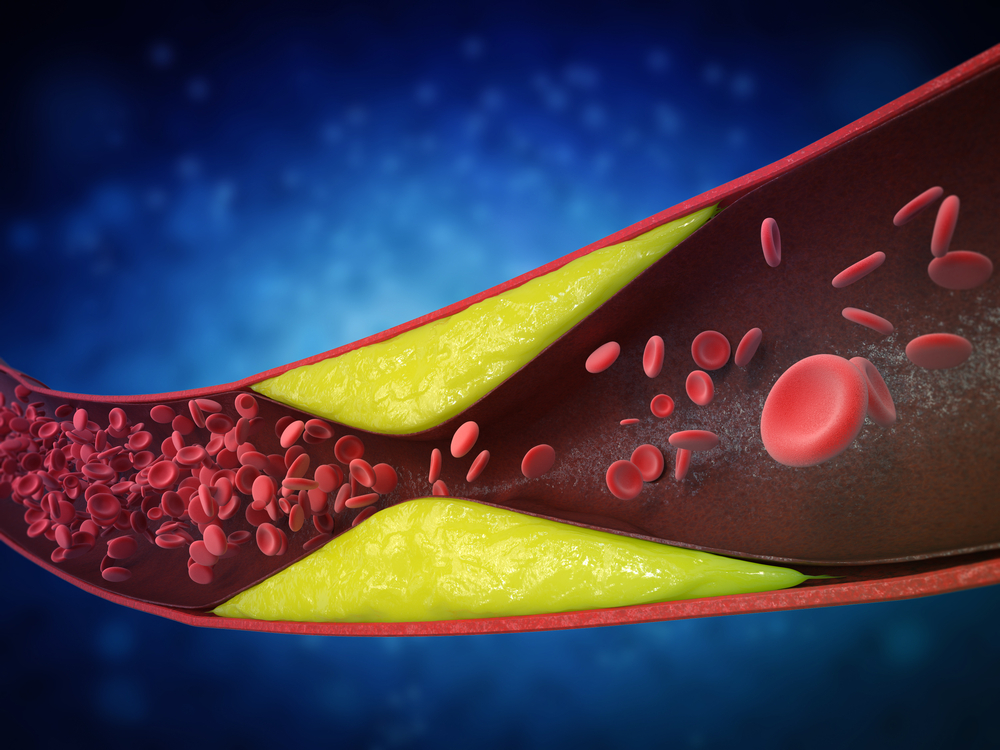High Cholesterol and Its Complications
When discussing various manifestations of atherosclerosis, the following three patient stories illustrate how this progressive condition can affect different parts of the circulatory system, leading to serious health complications that require prompt medical intervention.
Case 1: Coronary Artery Disease
A 58-year-old woman who was overweight and had a history of diabetes began experiencing chest pain, particularly during physical activity. A medical examination revealed that her low-density lipoprotein (LDL) cholesterol—commonly known as “bad cholesterol”—was extremely high. Further testing with a coronary angiography confirmed that she had coronary artery disease.
Case 2: Ischemic Stroke
Mr. Wang, a 70-year-old man with a history of hypertension (high blood pressure) and high cholesterol, experienced sudden facial numbness, difficulty speaking, and weakness on one side of his body. His family rushed him to the hospital, where he was diagnosed with an ischemic stroke.
Case 3: Peripheral Arterial Disease
A 60-year-old woman reported persistent soreness in both legs while walking. A medical examination revealed that she had peripheral arterial disease, a circulatory problem in which blood flow to the limbs is restricted, in this case by atherosclerosis.
Her symptoms worsened during physical activity because of increased blood flow demand.
Further tests showed that she also had high cholesterol and hypertension. In such cases, managing cholesterol levels and controlling blood pressure is essential for preventing further complications.
How Atherosclerosis Affects Multiple Organs
Excess cholesterol can build up on blood vessel walls, restricting blood flow and contributing to atherosclerosis. This condition can affect different arteries in the body, resulting in various complications.
- Coronary Arteries: Increased risk of coronary artery disease and heart attacks
- Cerebral Arteries: Potential for stroke
- Peripheral Arteries: Risk of peripheral artery disease
Beyond these risks, atherosclerosis can impair kidney function by reducing blood flow, subsequently leading to high blood pressure. Additionally, severe atherosclerosis can cause narrowing and blockages in blood vessels, which may worsen hypertension.
TCM’s Perspective on High Cholesterol
Unlike Western medicine, TCM does not rely on biochemical indicators for diagnosis, meaning that the concept of high blood lipids does not exist in TCM theory. So how does TCM view and manage high cholesterol?
- Qi Stagnation and Blood Stasis: When qi fails to circulate smoothly, blood flow becomes obstructed.
- Endogenous Wind of Liver: Liver dysfunction disrupts the movement of qi and blood, hindering proper circulation.
When qi, which comes from breathing and food intake and is also inherited from one’s parents, is deficient, blood flow is compromised. Dysfunction in the lungs, spleen, or kidneys can lead to severe qi deficiency.
TCM Links Liver Health to Stroke, Heart Disease
Stroke, acute heart disease, and even peripheral facial palsy are all linked to liver function in TCM. Additionally, TCM considers external environmental factors—such as wind, cold, heat, dryness, dampness, and fire—as contributors to illness.
The Link Between Emotions and High Cholesterol
In TCM, qi stagnation and blood stasis describe conditions in which the natural flow of energy and blood is disrupted, leading to poor circulation and potential clotting.
Additional TCM Insights on Emotions and Cholesterol
- Anger and the Liver: In TCM, anger is associated with the liver, which governs the smooth flow of qi and blood. Chronic anger or frustration can lead to liver qi stagnation, impairing lipid metabolism and increasing cholesterol levels.
- Fear and the Kidneys: Fear and chronic stress weaken the kidney system, which in TCM is believed to play a role in water metabolism and overall homeostasis. When kidney function declines, the body may struggle to regulate fluids and fats, potentially leading to dyslipidemia—abnormal levels of fats in the blood.
- Worry and the Spleen: Excessive worrying affects the spleen, which is responsible for digestion and nutrient absorption. Spleen qi deficiency can contribute to dampness and phlegm accumulation, which in TCM is linked to high cholesterol and arterial plaque formation.
- Sadness and the Lungs: Long-term sadness or grief weakens the lung qi, reducing oxygenation of the blood and contributing to poor circulation and sluggish metabolism, which may lead to increased lipid levels.
Traditional Chinese Herbal Therapies
TCM commonly employs herbal formulas to address cholesterol-related conditions. Examples include formulas that:
- Soothe the liver and regulate qi, such as Shugan Wan
- Promote blood circulation and dispel stasis, such as Xuefu Zhuyu Tang
- Replenish qi, such as Buzhong Yiqi Tang and Erchen Wan
Buzhong Yiqi Tang has been used for more than 700 years. Clinical and animal studies suggest that it can help protect against cerebral ischemic injury, reduce the volume of cerebral infarctions, prevent stroke recurrence, and alleviate post-stroke sequelae.








